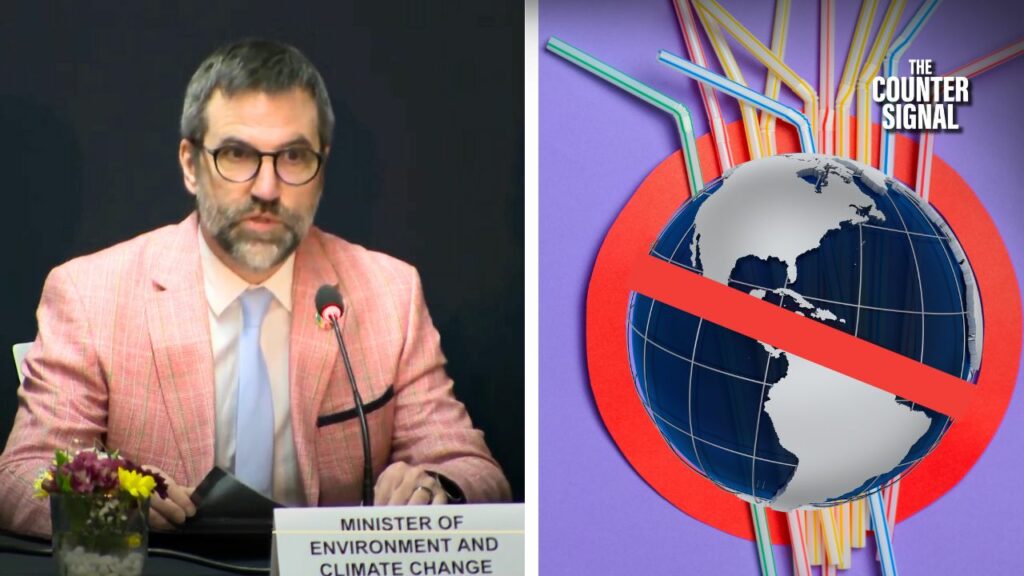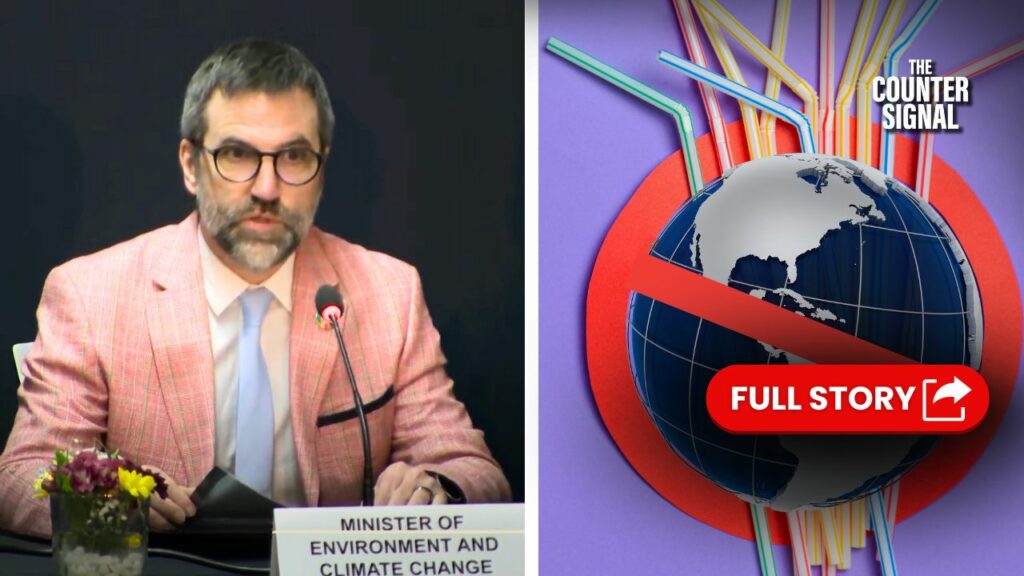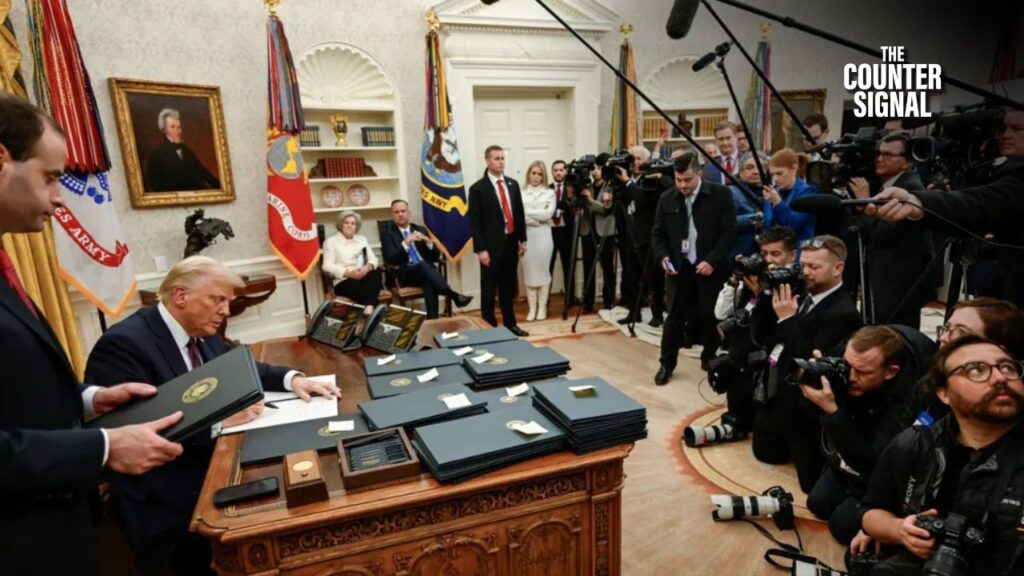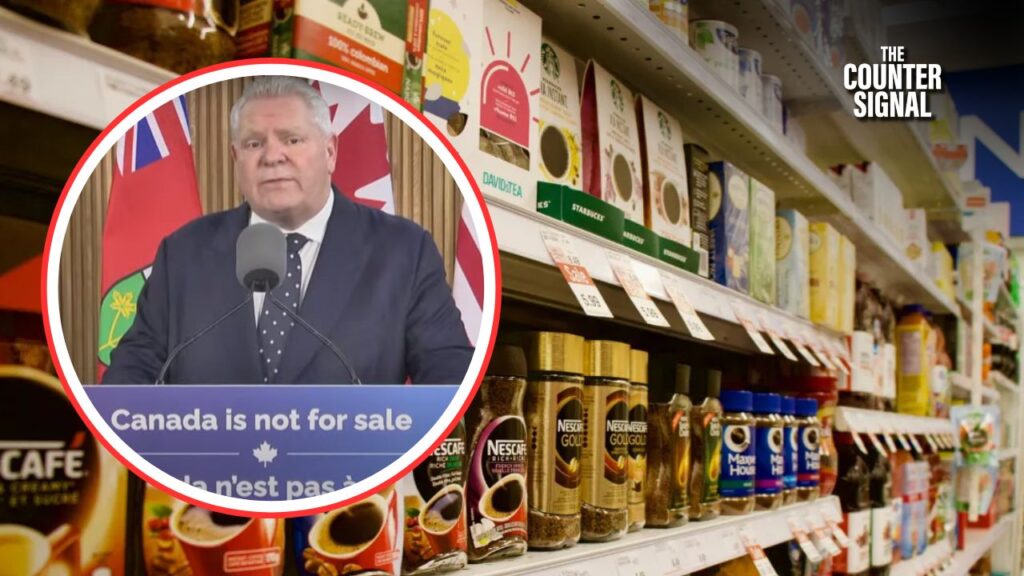A cabal of globalists has descended upon Ottawa to draft an international legally binding Plastics Treaty to force countries to track all plastics on the globe at all times throughout their lifecycle.

Set to be the biggest international agreement since the Paris Agreement of 2015, over 3,500 lobbyists, business tycoons, politicians, scientists, and environmental NGOs arrived at the Shaw Centre in Ottawa this morning for the biggest discussion on the Plastics Treaty since it was conceived in 2022, with the final talk scheduled for December 1, 2024, in Busan, South Korea.
The talks and regulations are being led and drafted by the United Nations Environment Assembly (UNEA) and the UN Environment Programme (UNEP). And unsurprisingly, the WHO and WEF are already cheerleading the inevitable loss of national sovereignty the Plastics Treaty will bring.
Our health and the health of our planet are closely intertwined.
— Tedros Adhanom Ghebreyesus (@DrTedros) April 22, 2024
This #EarthDay, @WHO supports @UNEP’s call for a #PlasticTreaty to protect the health of people and the planet. https://t.co/FPrB3mobXi
“Against the backdrop of geopolitical turmoil, the UN Environment Assembly shows multilateral cooperation at its best,” said Espen Barth Eide, the President of UNEA-5 and Norway’s Environment Minister, in a press release. “Plastic pollution has grown into an epidemic. With today’s resolution we are officially on track for a cure.”
Speaking to Reuters, the Chair of Negotiations, Andres Gomez Carrion, said, “It’s a crucial moment of this process. One of the biggest challenges is to define where the plastics lifecycle starts and define what sustainable production and consumption is.”
“We have a once in a lifetime opportunity to profoundly change our relationship with plastics. We cannot waste it."
— UN Environment Programme (@UNEP) April 22, 2024
—@andersen_inger in Ottawa on #EarthDay ahead of this week's #PlasticsTreaty negotiations https://t.co/iJX7iRvpxl pic.twitter.com/iIu0JPo2dh
Canada announces the Federal Plastics Registry one day before treaty talks
Not by coincidence, just one day ahead of the meetings in Ottawa, Canada’s Environment Minister, Steven Guilbeault, announced Canada’s very own Federal Plastics Registry in line with the Plastics Treaty, giving the world a look at what will be expected under the new global regime.
Climate change activist Steven Guilbeault created a law against single use plastics that was shot down by the Canadian Supreme Court. pic.twitter.com/mpWYGDzGsJ
— sonofabench (@therealmrbench) November 20, 2023
The Trudeau Enviroment Minister is now trying to bypass Canada & make a "legally binding treaty” at the UN to allegedly…
As per a Government of Canada news release, the government will establish a Federal Plastics Registry that will require companies (including resin manufacturers, service providers, and producers of plastic products) to produce annual reports on all plastics, their types, imports, and where they end up in various markets.
“Reporting on the amount of packaging and other plastic waste generated on industrial, commercial and institutional (ICI) premises will be mandatory,” the government writes.
They will also be required to produce reports and monitor how much of the plastic is collected for diversion, reused, repaired, remanufactured, refurbished, recycled, or reprocessed, as well as how much ends up in landfills or is incinerated.
This is, of course, entirely impossible. And when questioned on how companies could possibly track all plastics throughout all stages of their lifecycle, Guilbeault couldn’t give an answer, saying that he’s sure businesses will just “figure it out” or face the consequences.
Dressed in a pride flag, Environment Minister Steven Guilbeault panics when pressed by a reporter on how the plastics registry would actually work. Crazy Steve tells her that the Canadian government's approach to regulation is to let the private sector "figure it out." pic.twitter.com/eAmtpJazFQ
— Amazing Zoltan (@AmazingZoltan) April 23, 2024
What is Big Business saying about the Plastics Treaty
However, while multinational corporations are taking a cautious approach given that they rely on plastics for distribution and practically every part of production, they are not opposed to the Treaty. On the contrary, they are all for the eventual banning of all plastics.
According to an article from the Business Coalition for a Global Plastics Treaty, the top of their agenda includes “A core obligation for all parties to the treaty to implement restrictions and phase-outs in a globally coordinated manner where plastic-containing products hinder progress towards a circular economy, pose critical health risks or have a high risk of ending up in nature.”
They also say they want “all parties to the treaty to implement mandatory product design requirements, based on clear definitions and harmonised criteria” and for “all parties to the treaty to implement Extended Producer Responsibility (EPR) regulations based on common modalities, yet differentiated timelines for their implementation.”
Put simply, they are advocating for an end to plastics on the condition that regulations on designs and mandatory tracking are put in place that are nearly unfollowable and will make it impossible for small businesses (their competitors) to operate legally.
Representing the Business Coalition are executives from Amcor, L’Oréal, Mars, Nestle, Pepsi, Coca-Cola, Walmart, and many more.









